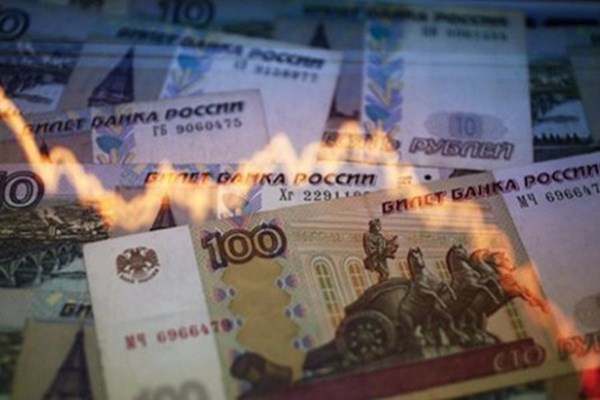Kremlin to sacrifice economy for the sake of larger military budget
The Russian Finance Ministry has published a draft federal budget for 2020-2022 in which it has further increased financing for the security forces and reduced the budget for the economy, education and regional assistance.
According to the document and its appendices, which have been uploaded onto the official legal information portal, the Russian government plans to spend $302 billion out of its expected $315 billion in revenue.
Overall, the government will spend $5.65 billion (1.9%) more than the revised budget for 2019, although the budget for several areas will be reduced.
Despite the proclaimed “breakthrough” and the national projects that are expected to accelerate the economy’s growth rate to above the global average, the funds allocated to “national economy” in 2020 have not only failed to grow, they have been reduced by $5.34 billion (11.9%).
Whereas in the revised budget for 2019, $44.84 billion was allocated to assisting the economy, only $39.49 has been allocated to this in the budget for 2020.
The budget for education is $201 million less, reduced from $13.92 to $13.72 billion.
Subsidies for the Russian regions will also be cut back (from $16.07 to $15.6 billion), as well as the funding for housing and utilities (from $4.49 to $3.84 billion).
The Kremlin plans to use these savings to provide larger budgets for the security forces and for government-controlled media.
Defense expenditure in the publicly viewable portion of the budget will be increased by just under $1 billion to $16.53 billion.
The allocation to “National Security”, which includes financing for the Interior Ministry, National Guard, Investigative Committee, Public Prosecution Service and Federal Security Service, has been increased by $1.22 billion to $22.52 billion.
Factoring in $51.44 billion allocated to the classified portion of the defense budget, the total funding for the security forces could grow from $85.81 billion to $90.5 billion, consuming nearly 30% of the entire federal budget.
Spending on state-controlled media will increase by around $46 million to $1.41 billion, of which $100.6 million will be used to subsidize Channel One.
The Russian government plans to decrease its spending on propaganda in 2021, when the law On Sovereign Internet comes into force, making it easier to censor undesired traffic. The funding for state media will be reduced by 22% to $1.09 billion in 2021.
In light of the recent unpopular pension reform, the budget for pensions will be frozen for the time being, and then reduced by 7% in 2022, from $50.1 to $46.4 billion.
The total allocation for social benefits will increase by $2.21 billion next year (to $77.4 billion) and another $526 million in 2021 (to $77.91 billion). However, in 2022, it will be reduced, and even fall below the level for last year ($74.51 billion).
The spending on healthcare could be a ray of light amid the otherwise bleak budget. Next year, the healthcare budget will be increased by 33% (from $11.4 to $15.3 billion) and maintained at this level until 2022.
An even more drastic increase is planned for the item “Protection of the environment”, whose budget will increase from $3 billion this year to $5.39 billion in 2020 and $6.76 billion in two years time.
The budget will retain a surplus, with the expectation that more will be collected in taxes than is spent on all budget items. The Finance Ministry is expected to retain $13.6 billion in 2020, $9.5 billion in 2021 and $4.4 billion in 2022. In accordance with budget regulations, these funds will be converted entirely into foreign currency.
“The Federal Budget for 2020-2022 is stimulating to the economy in nature,” the Finance Ministry said in a statement: Expenditure is growing with respect to the GDP despite the significant slowdown in the global economy and unstable situation in the global energy market.
